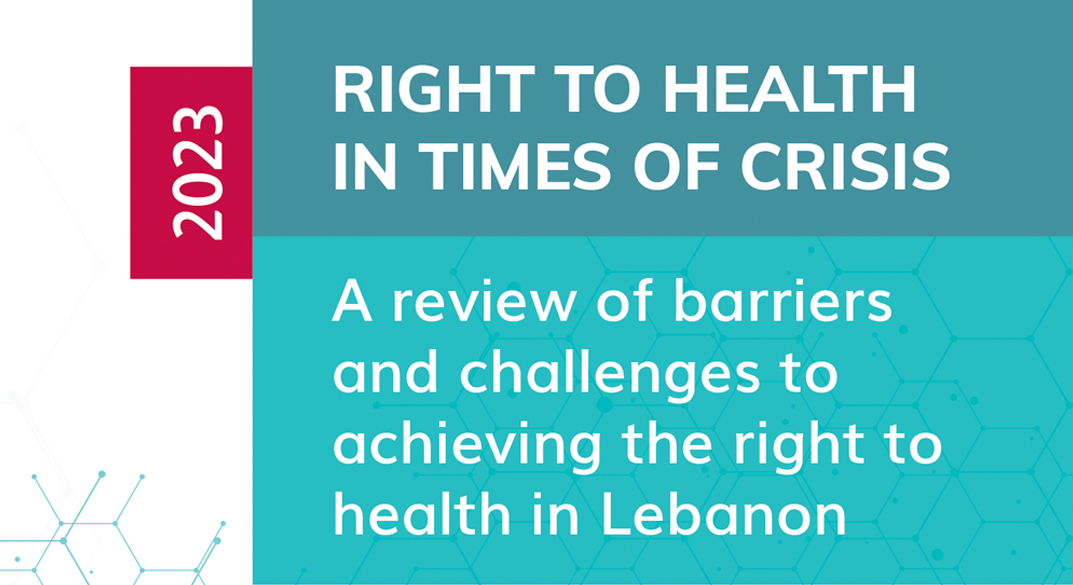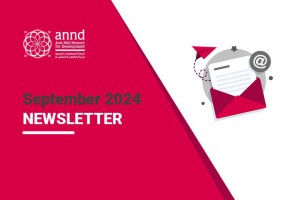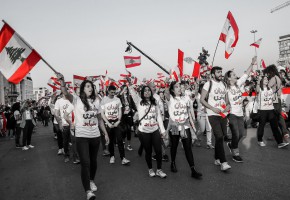
A review of barriers and challenges to achieving the right to health in Lebanon - Maysa Baroud

This research is a part of the Arab Watch Report 2023 on the right to Health.
Right to health in the times of crisis: A review of barriers and challenges to achieving the right to health in Lebanon - Maysa Baroud
Please click here to download the full report.
Introduction
Lebanon’s current economic crisis, compounded by the
COVID-19 pandemic and the August 4 Beirut Blast, has had a profound
impact on all aspects of life and, in turn, on the living conditions for
many. The currency has lost over 90% of its value, with consequences on
the purchasing power of most of the population. Inflation is
soaring—the overall consumer price index increased by 253.55% from June
2022 to June 2023, and food and non-alcoholic beverage prices increased
by 279.54%, while the health prices (including services, medicines, and
medical equipment) increased by 284.27% (Central Administration of
Statistics [CAS] 2023). In addition, the government has lifted subsidies
on basic commodities, including certain medicines, fuel, and infant formula. Import tariffs have also been raised, impacting the price of
commodities and their affordability, noting that Lebanon relies heavily
on imports for most goods, including food and medicine.
The
crisis was years in the making and exposed a weak political and
economic system upheld by a corrupt political class. Lebanon’s liberal
economic approach, adopted after the country’s independence, has
enriched a small proportion of the population while perpetuating
inequities. Available welfare and social protection programs are
fragmented, complex or non-functional and continue to promote reliance
on the political class (Proudfoot 2021a, 2021b). Furthermore, what
should be public services have often been provided by the private
sector. Even before the crisis, the quality of public services in
Lebanon was poor—with regard to health, the crisis exposed already
existing structural problems in Lebanon’s healthcare system. The quality
of public services has continued to deteriorate since the onset of the
compounded crisis at the end of 2019, while governorates other than the
capital Beirut, and part of Mount Lebanon remain underdeveloped. Indeed,
the greatest consequences of Lebanon’s crisis have been especially felt
by those most vulnerable (Bourhrous 2021).
Against this
backdrop, this report seeks to shed light on the impact of Lebanon’s
ongoing economic crisis and weak public services on the health of
individuals and the right to health for all in the country. The report
provides a review of (select) cross-cutting issues that impact the
attainment of the right to health, focusing on issues related to
healthcare access and management. The report also provides a brief
overview of the development of Lebanon’s health system. Based on the
findings, it concludes with recommendations to facilitate the attainment
of the right to health for all in Lebanon. The report relies primarily
on a review of available literature and secondary data (the limitations
of which are discussed in a later section of this report).
Maysa Baroud
Please click here to download the full report.
This research is a part of the Arab Watch Report 2023 on the right to Health.
Recent publications



